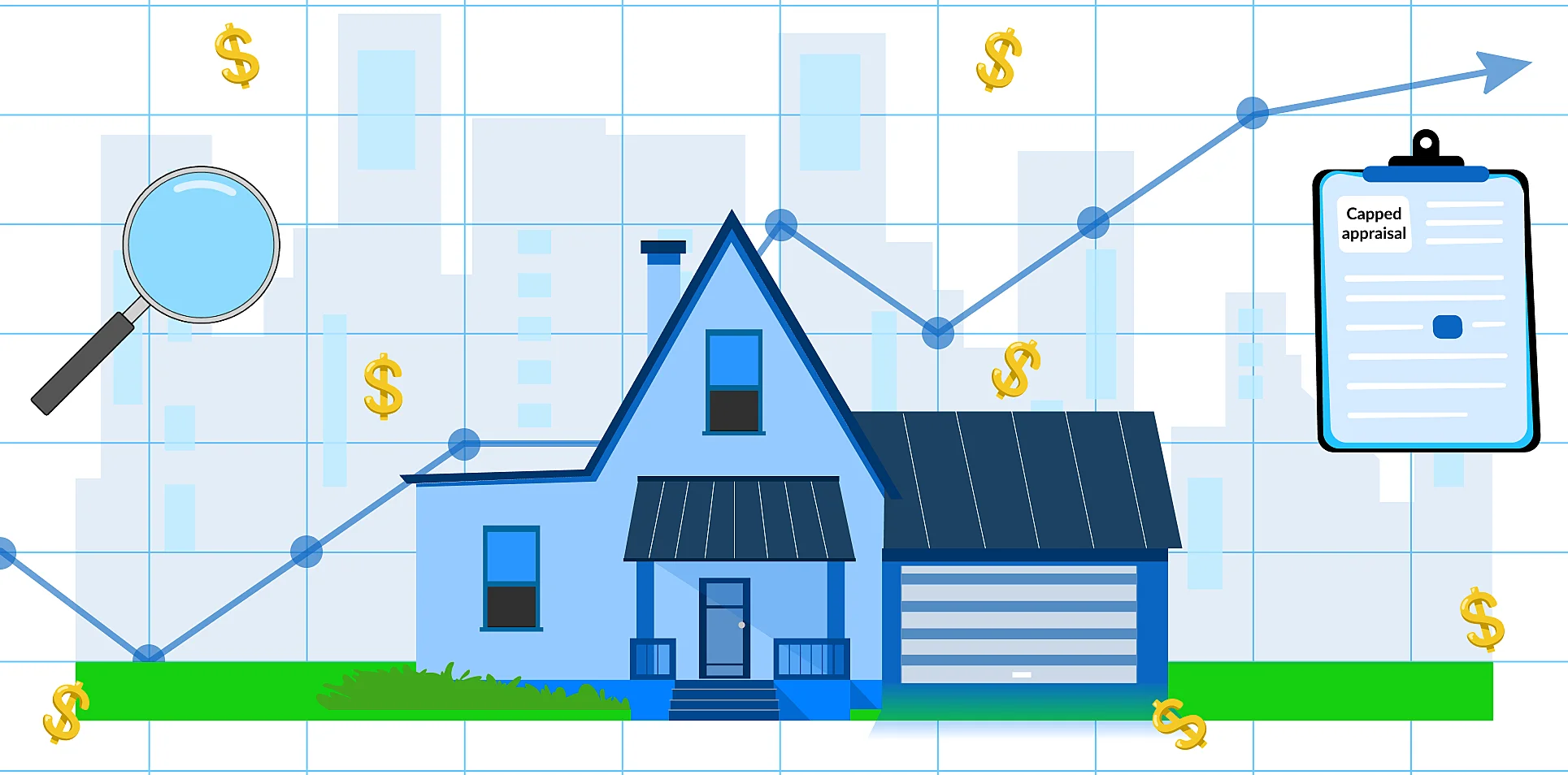March 13, 2021
Capped Appraisal Values and its impact on property taxes in Texas.
Texas has seen a sharp rise in prices of new and used homes across counties over the years. To control a substantial increase in home property taxes from year to year, Texas set a limit to taxable values of qualified residence homesteads.
Your home's property tax value is determined by three factors -
- The appraised value determined by the appraisal district.
- Tax exemptions your property or you (the owner) qualify for.
- Tax rates set by the governing bodies of the taxing units.
Among these, the appraised value is calculated to equally distribute the tax burden among all property owners under a taxing unit's jurisdiction. This is important because property tax income is used by taxing units to fund public services.
According to law, any property's value must be appraised at current market value for tax purposes. The market value of your home is an estimate of the price your home would sell for on Jan 1 of the year. The appraisal district compares your home to similar homes that have sold recently and determines your home’s value.
Appraisal districts also use the cost and income approach. Learn about the different approaches used to arrive at an assessed value here.
The appraised value of a property is often calculated as a percentage of the market value. In Texas, prices of new and used homes have seen a substantial increase over the years. This, in turn, could have raised property tax bills through the ceilings!
Fortunately, a 1997 legislation was responsible for setting a limit to increases in the taxable value of a qualified residence homestead.
Texas Property Tax Code Section 23.23, states that a residential homestead is limited to a 10% increase.
Qualification:
To qualify, the property must be your residence homestead, and you must have received a homestead exemption in your name in both the current and previous years.
The appraised value of a qualified residence homestead will be the lesser of:
- the market value (what the property would sell for on the open market); or
- the preceding year's appraised value
- 10%
- the value of any improvements added since the last re-appraisal
The calculated value is often referred to as a "capped" value.
Let us simplify it with an example for you.
Mr. Smith's property's value was appraised at $100,000 for 2020. This property is Mr. Smith's home, i.e, the property he regularly resides in or intends to return to, which makes it eligible for the residence homestead exemption.
In 2021, the appraisal district determines the market value of Mr. Smith's home to be $1100,000.
But, 2020's appraised value plus 10% is $110,000.
The values we have:
- $1100,000 (the market value of the home in 2021)
- The 2021 appraised value of $100,000 plus 10%, i.e $110,000
The lesser of these two values, i.e, $110,000 is Mr. Smith's appraised value for 2021. Further, multiplying this appraised value with the tax rate gives the final value Mr. Smith sees on his property tax bill.
7 things to remember about capped appraisal values:
- Limitations take effect one year after you receive your Homestead Exemption.
- Limitations do not apply to new improvement added in the same year.
- Limitations are removed when property is sold.
- Limitations are indicated on the Notice as “Capped Value”
- All applicable exemptions are subtracted from the Capped Value instead of the Market Value.
- Capped Value - Exemptions = Taxable Value.
- Capped Value is not a lifetime limitation.

Disclaimer
Articles presented here are for general information and education only. It is provided as a courtesy to the general public. SQD Taxtech LLC does not warrant that it is accurate or complete. Opinions expressed and estimates or projections given are those of the authors or persons quoted as of the date of the article with no obligation to update or notify of inaccuracy or change. This article may not be reproduced, distributed or further published by any person without the written consent of SQD Taxtech LLC. Please cite source when quoting.
SQD Taxtech LLC, its managed affiliates and subsidiaries, as a matter of policy, do not give tax, accounting, regulatory or legal advice. Rules in the areas of law, tax, and accounting are subject to change and open to varying interpretations. You should consult with your other advisors on the tax, accounting and legal implications of actions you may take based on any strategies presented, taking into account your own particular circumstances.